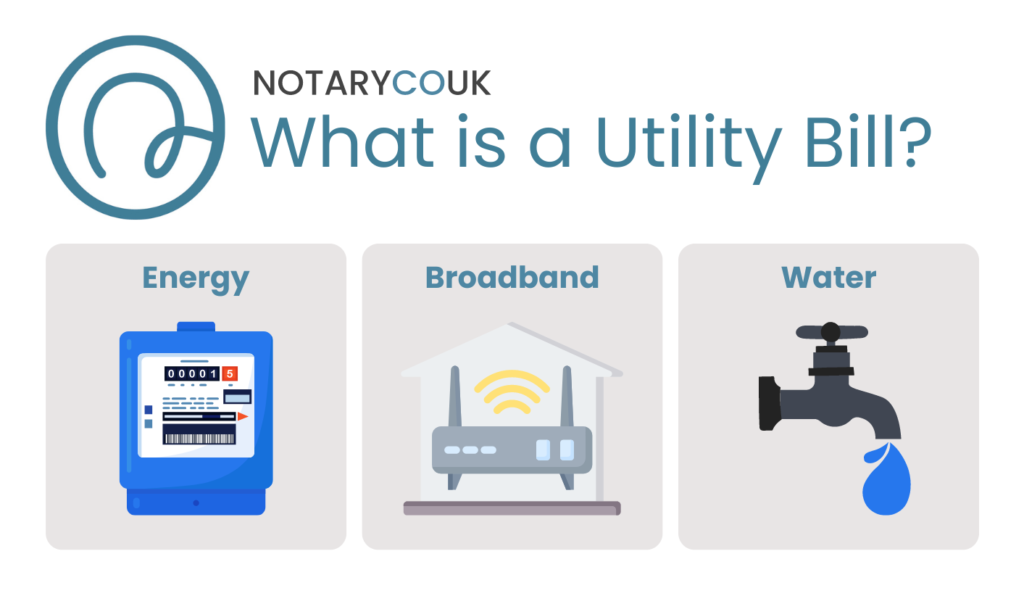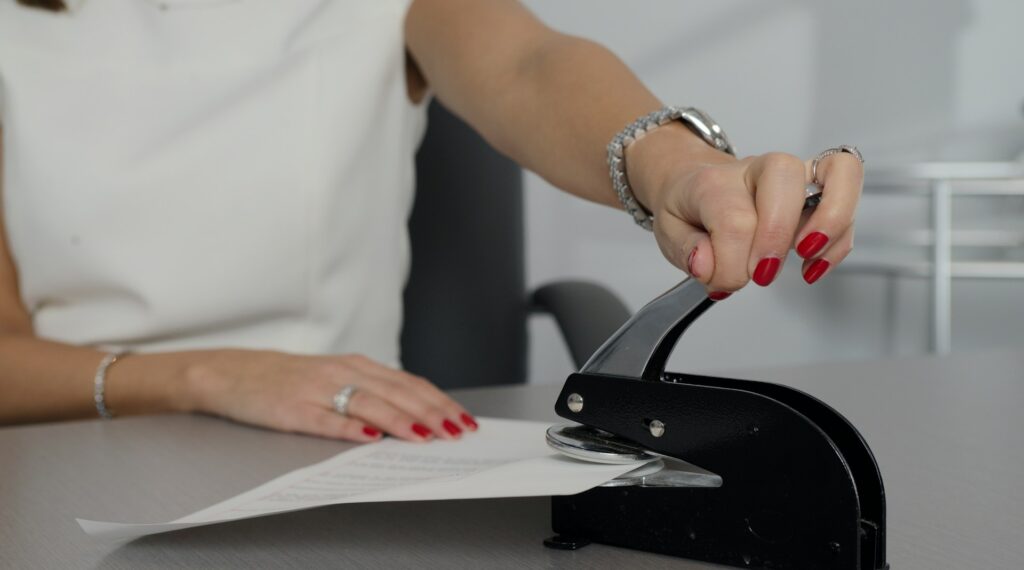Your utility bills aren’t just worth keeping for budgeting and accounts purposes. They can also serve as crucial documentation when you need to prove your identity. From confirming your residency to applying for a bank account, utility bills can play a significant role in day-to-day affairs.
In this blog post, we’ll explain what utility bills are, provide five examples, and cover what to do when submitting one abroad.
Utility Bill Meaning
A utility bill is a statement of charges for services, such as electricity, gas, water, and broadband. Bills are typically sent monthly or a few times a year, either by post or email. They will either state a fixed charge or detail your usage during the billing period and tell you how much you need to pay.
Utility bills include important information such as your account number and payment due date. They also show your name and address and are usually dated, making them suitable for proof of address purposes.

What Counts as a Utility Bill?
A utility bill is a document that shows charges for essential services such as:
- Energy (electricity and gas)
- Water
- Telephone and internet
Generally, any document from an essential service provider that shows usage and charges can be considered a utility bill. If you need to supply proof of address, it’s worth checking the organisation’s specific requirements. Usually, though, any of the above utility bills are acceptable, along with council tax bills and other government-issued documents.

5 Utility Bill Examples
Here are some examples of utility bills you can typically use as proof of address:
- Thames Water Bill
- British Gas Bill
- Virgin Media Broadband Bill
- Scottish Power Bill
- TV License Bill
Always check that the utility bill contains your full name and address and is dated in the past three months.

Using a Utility Bill Overseas
When sending a utility bill to someone overseas, especially for official or legal purposes, it often needs to be verified by a notary public.
- Notarisation: Check whether the recipient needs the utility bill to be notarised. A notary public like ours can verify the document and attach a notarial certificate to ensure it’s recognised as a genuine document.
- Legalisation: In some cases, the utility bill may also need to be legalised. We will obtain an apostille if the recipient country is a member of the Hague Apostille Convention or complete consular legalisation if not.
- Translation: If the recipient does not understand the language of the utility bill, it may need to be translated. We can certify your translation as a true copy.
Some countries have different requirements for proof of address, so make sure to check that your utility bill is suitable before arranging notarisation.
Arrange Your Notarisation
We notarise and legalise utility bills for use in countries all over the world. Get in touch with your requirements and we’ll ensure your document is accepted.
Get your utility bill notarised now with a next-day return. Call 020 7630 1777, email info@notary.co.uk or complete our contact form below.

